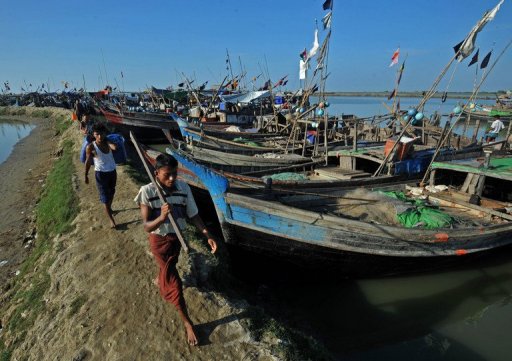
(DNE File Photo)
By Mohamed Alaa Eldin
Summit Holding targets 10% growth in its Egyptian operations during 2015, and will also focus on cloud computing services. In an interview with Daily News Egypt, CEO Magda El-Sabee said the company will also focus on providing integrated solutions for telecommunication companies and call centre services.
The company has call centre operations throughout Africa in collaboration with Avaya and Cisco, while increasing a presence in the Saudi market through the acquisition of an Oracle-based project.
What are the most important services that Summit will focus on in 2015?
We will work to focus on a number of distinctive services that we launched in 2014, especially cloud computing, since it boasts promising investment opportunities for the Egyptian market, in addition to continuing to provide integrated solutions in the telecom sector. We also hope to become more self-reliant in implementing all parts of the solutions we offer instead of relying on partners to ensure the quality of services provided and maximise revenues. This will apply to projects like extending cables.
We will also focus on call centre services and are targeting a wider expansion for this in the African market in 2015. We also hope to continue providing Oracle applications, particularly through two applications the company created on the Oracle platform specifically for the construction sector and the real estate development. We are looking to expand in the Saudi market as well, as it is the second largest market in the Middle East.
The company will also focus on surveillance cameras and government protection systems and has already implemented several projects in this regard, both for the public and private sectors. Surveillance cameras were installed in the main areas in Hurghada, Alexandria, and Mansoura in addition to a number of police stations and football stadiums.
How does your company view government projects launched in the market during 2014?
In 2014, the Ministry of Communications launched various tenders and projects that energised an otherwise stagnant market. We were able to take the lead on a number of projects including automating the Court of Cassation, as well as a special project at the Ministry of Social Solidarity, in addition to providing a number of security applications for the Ministry of Interior.
The Ministry of Communications was able to jumpstart a number of projects there have been stalled since 2011, including specialised training projects, and Summit was able to appropriate a share of these training projects. These represent positive steps for the IT market and for companies operating therein.
What is the government’s share of the total size of your operations during 2014?
Government projects represent around 30%-40% of our operations, while the remainder are private sector operations.
What is your opinion regarding the telecom sector launching projects using the private sector partnership system (PPP)?
The Ministry of Communications decided to launch three projects in collaboration with the private sector, according to Law 2010/67. These include the smart counter, the real estate register, and the commercial register. The real estate register project costs EGP 650m and will help re-energise the market due to its effect on increasing the volume of SME business, which the large companies who win the project will utilise.
Also the law does not oblige the company executing the project to be local, this will help attract foreign investment and add to the expertise of local companies [working] on the Egyptian market.
Do you have any comments on the mechanisms of the real estate automation project?
It would have been preferable to have the project divided into several stages or geographical regions. It is a mega-project in terms of size due the proliferation of offices in all provinces, with 370 offices being built in just two years, allowing more companies to benefit from the project.
You had a plan to establish and manage a data centre – where do you stand on this now?
After the 25 January Revolution, we received a grant from a US trade stimulation authority to conduct a feasibility study for a private data centre for the company. We were able to finish the study mid-2013. At the time, we were discussing our ability to increase financing for the conditions of contract with the organisation, but political matters became complicated in June 2013 and the project was stalled, as were the talks with the US. Recently, we received all funding necessary to fulfil contract conditions, and it’s currently completely prepared and ready to go. Changes are currently being made to the work plan due to the different economic circumstances and changes in the dollar exchange rate. These changes are in preparation for the project tender in 2015.
How did events in Egypt over the past few years impact your growth rates?
In 2011, there was no impact because the company was already working on a number of projects, however, there were slight decreases in company business in 2012 of nearly 3%. Things were more stable in 2013, and business grew by 25%. In 2014, we didn’t expect the same growth rates due to all the political changes and security issues, and the growth rate was only 10% as expected.
What are your plans for growth in 2015?
We plan to continue along with the same growth rates of 10% in 2015, with a focus on improving the quality of our services and increasing profit margins. This will help the company become self-sufficient in implementing various aspects of projects instead of relying on subcontractors like we did previously.
We’ve also conducted research and found that we deal with more than 300 clients. However, the clients representing 90% of the company’s incomes are no more than 15, so the company will alter its plans in 2015 to maximise business with clients that control the largest share of our income.
The Egyptian government launched an initiative not long ago aimed at reconciliation with investors. How has this impacted the sector?
The law won’t benefit us directly, but it will improve the investment climate generally and remove he fears investors have regarding the Egyptian market. This will help push along some motion and indirectly and positively impact us as a company working in the sector.
What are the main investment opportunities in the information technology sector locally?
All sectors fundamentally depend on the human factor, especially for services, programming and training. This is because human personnel are easily available in this field if given necessary training, especially fresh graduates. This helps fill the gap between fresh graduates and the actual needs of the labour market, taking into consideration the gap created by economic conditions in the country over the past years and the migration of much personnel to the Gulf.
Egypt’s geographical location and the passage of more than 18 marine cables under its territory creates an opportunity for Egypt to benefit from this situation and become an internet centre regionally and globally, generating revenues bigger than those of the Suez Canal.
What are your plans for expansion in the coming period?
We are focused on Saudi Arabia as we have a large project there in the “oracle” application field. In Africa, we are more focused on call centre services in cooperation with Avaya and Cisco. In Algeria we offer valuable extra mobile services with three mobile networks operators there, and we were able to obtain approval from the Algerian Telecommunications Regulation facility in order to offer two new services. One is called “Doaa”, a religious service, and the other is called “Seha”. Locally, we’re currently cooperating with TE Data to establish cloud computing for the Egyptian government.



